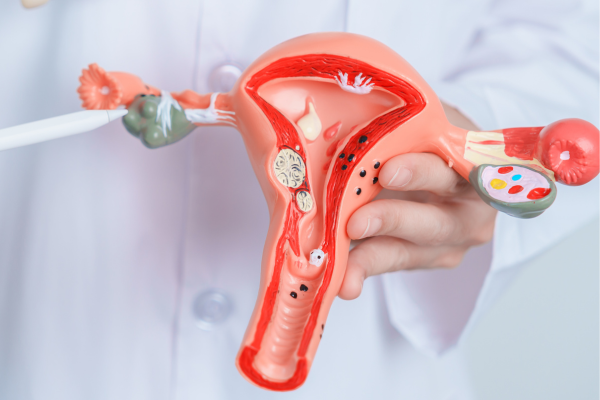Diminished Ovarian Reserve, ART,And Way Forward
Introduction
Diminished ovarian reserve (DOR) is a condition in which the ovary loses its normal reproductive potential, compromising fertility. This is why the lay public sometimes calls DOR ‘low egg reserve’ colloquially. The condition may result from disease or injury, but most commonly occurs as a result of normal aging.
Approximately 10 percent of women begin this usually age-related decline of ovarian function much earlier in life. When their ovarian reserve is evaluated, it is found to be lower than expected for their age.
Like older women with age-related DOR, women with poor ovarian reserve (POR) have a hard time conceiving on their own and even with fertility treatments, as they are often misdiagnosed and given inappropriate treatments for their ovarian reserve status. However, with appropriate premature ovarian aging diagnosis and treatment, many patients often successfully conceive.
Causes of Poor Ovarian Reserve
When initially diagnosed with poor ovarian reserve, many of our patients ask, “What causes low ovarian reserve?” DOR may be a part of the natural aging process; in other women, it may have an autoimmune etiology; we also suspect there is a genetic component when DOR develops prematurely. With DOR, it is crucial that your fertility specialist recommend appropriate ovarian reserve testing for proper diagnosis, and suggest diminished ovarian reserve treatment.
Diminished Ovarian Reserve Symptoms
Diminished ovarian reserve often does not have any symptoms, and patients are unaware that they have DOR. The most common low ovarian reserve symptoms, when present, are missing or irregular periods. Difficulty conceiving, as well as repeated miscarriages, are often the only outward signals that DOR may be involved.
Because DOR symptoms are often absent, testing is imperative when a woman has trouble conceiving. The best method to diagnose low ovarian reserve is to perform a blood test that checks for a woman’s follicle-stimulating hormone (FSH) and anti-mullerian hormone (AMH) levels. Elevated FSH levels and low AMH levels are indicators that the ovarian reserve is becoming depleted. Antral follicle count (AFC) is sometimes used to evaluate ovarian reserve, but AFC is not as reliable as FSH and AMH.
Can you get pregnant with DOR?
It’s still possible to get pregnant with a diminished ovarian reserve. Research shows that 33 percent of patients with diminished ovarian reserve can get pregnant with their eggs after receiving treatment.
Does DOR cause infertility?
Diminished ovarian reserve (DOR) occurs when a woman’s ovaries lose their reproductive potential, which can cause infertility. A woman’s ovarian reserve refers to the quality and quantity of her eggs, and diminished ovarian reserve means those factors decrease.
How successful is IVF with DOR?
Although pregnancy rates with IVF are certainly low for patients with DOR, we have achieved better pregnancy rates than the “less than one percent chance” often quoted to these patients.
Does DOR mean poor egg quality?
DOR refers to a reduced number and quality of follicles in the ovary and the potential of follicles to develop into high-quality oocytes is compromised, causing infertility.
Do you ovulate with DOR?
When a woman has a low number of eggs in her ovaries, she may not ovulate every month, which can seriously reduce her chances of conceiving from intercourse alone. Furthermore, egg quality and quantity usually go hand in hand, meaning that a woman with DOR has both a low number of eggs and low-quality eggs.
ART and Reproductive Aging
Women who have infertility due to DOR can employ assisted reproductive technologies to boost their chances of getting pregnant, but no treatment or supplement has been proven to stop the process of reproductive age. A crucial part of a fertility evaluation is determining whether you have DOR, particularly as more and more women seek fertility treatment later in their reproductive years.
Ovarian reserve, often known as egg quantity and quality or reproductive potential, affects a woman’s capacity to become pregnant. Age affects fertility significantly and is related to reproductive aging.

